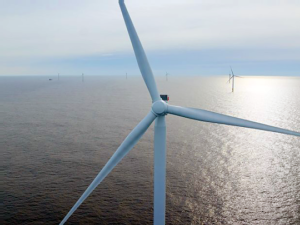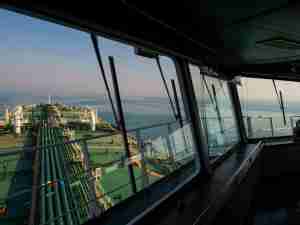Insurance snags seen holding up Iran oil exports to Europe
By: Reuters | Jan 26 2016 at 01:27 PM
LONDON - Efforts by Iran to start exporting oil to Europe are being held up as foreign tanker owners are still struggling to secure insurance for cargoes, leading shipping players said on Tuesday.
A nuclear deal between world powers and Iran earlier this month led to the removal of curbs on Tehran’s banking, insurance and shipping sectors.
Since then, Iran has ordered a 500,000 barrel per day (bpd) increase in oil output, of which 200,000 bpd will go to Europe.
But many foreign firms remain wary of violating other sanctions that were imposed by the United States and have not been lifted. Measures still in place from Washington prohibit most business between U.S. persons, U.S. companies and Iran as well as no dollar trades.
Paddy Rogers, chief executive with tanker operator Euronav , said his company had been approached to carry Iranian oil to Europe.
“We have had enquiries. It is interesting that the first enquiries to move Iranian oil came from Europe not from China,” Rogers told a Capital Link web conference.
Third-party liability insurance and pollution cover for vessels is provided by P&I clubs - marine insurers owned by shipping clients and reinsured internationally.
Rodgers said the umbrella International Group of P&I clubs were still unable to confirm payments under re-insurance contracts.
“It has not been cleared yet. So, nobody can load at the moment it seems to me ... unless somebody has some alternative method of insurance,” he said.
“I think this is going to come on. But it will take time and it won’t be very straightforward.”
Greece’s biggest oil refiner Hellenic Petroleum agreed on Friday to buy crude oil from state-owned National Iranian Oil Company, becoming the first European refiner to restart trade relations with Tehran.
Iran’s oil exports have fallen to just over 1 million bpd, from a peak of more than 3 million bpd in 2011 - before the imposition of tougher sanctions.
Oil held by Iran on its domestic tankers in floating storage is estimated by shipping sources to be at least 40 million barrels as the country struggles to offload supplies because of a global glut.
Robert Hvide Macleod, chief executive with tanker group Frontline Ltd, said he expected additional Iranian exports of at least 500,000 bpd this year.
“They will do what they can what they can to get the European market back and there will be demand for international tonnage to handle this volume,” he said.
Macleod said the insurance and payment system was still not there yet, but added that it “will get in place in the short-term”.
Nikolas Tsakos, president and chief executive of another leading tanker player Tsakos Energy Navigation Ltd, said competition between Iran and arch rival Saudi Arabia was expected to heat up, further boosting vessel demand.
“They are going to compete and are going to try to out produce each other,” Tsakos told the call. “That, of course will add supply in the market.”








